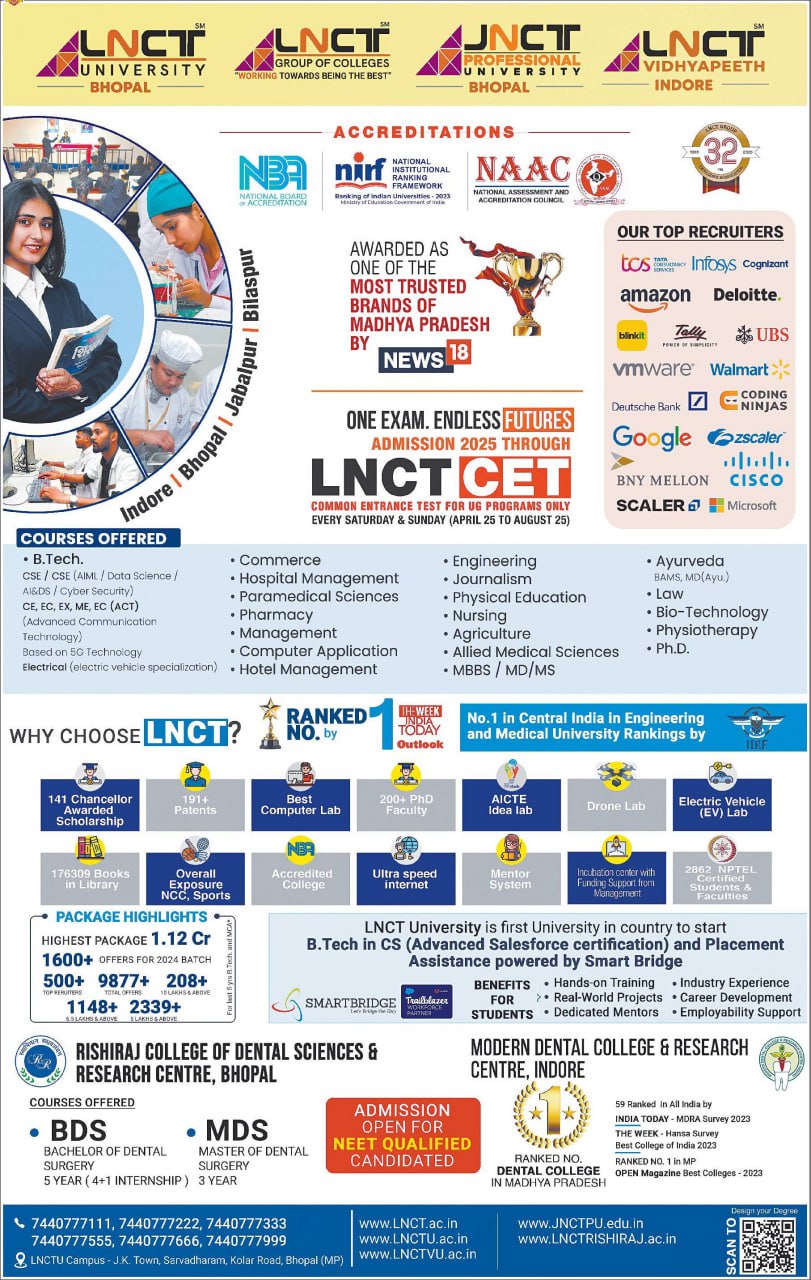CNN Central News & Network–ITDC India Epress/ITDC News Bhopal: Now, it will be possible to treat complex conditions in children, such as skull-base tumours, vascular abnormalities, infections, and trauma with the opening of a first-of-its-kind comprehensive paediatric neuro skull-base unit at Bai Jerbai Wadia Hospital in Mumbai.
Established two months ago, the new unit is equipped to perform minimally invasive endoscopic surgeries, which reduce recovery time for patients.
Staffed by a team of six specialists, including neurosurgeons and ENT endoscopic skull-base surgeons, the unit will have a multi-disciplinary approach to treatment. This is a significant step in the treatment of rare tumours in children because there are only a few dedicated centres for specialised care that is required and the occurrence of such tumours is comparatively low. Among the patients treated at the new unit so far is nine-year-old Pari Kondilkar, a resident of Panvel, who was diagnosed with multiple brain abscesses—pus collections in the brain resulting from complications of sinusitis. She underwent endoscopic surgery and pus drainage.
Dr Chandrashekhar Deopujari, a neurosurgery specialist at Wadia Hospital reportedly said the occurrence of such tumours in children is low which is why there are few dedicated centres for this kind of specialised care. “We have already treated two patients, so there is a need for such facilities. Although tumours in children are rare and no comprehensive data is maintained in India, we still expect about 20 cases a year,” Deopujari added.
Skull base tumors in children affect mainly the anterior and middle cranial fossa, say experts. Sarcomas account for the majority of malignant tumors. However, published data obtained in children with tumors of the skull base are sparse. A study was conducted by the Skull Base Surgery Unit at the Tel-Aviv Sourasky Medical Center in Israel, aimed to examine the surgical, oncologic, and developmental results of infants and children undergoing extirpation (complete removal) of skull base tumors. They concluded that the process by use of conventional surgical techniques is feasible and safe among infants and children. The complication and mortality rates are also lower than those in adults. Most importantly, the researchers noted that the long-term cosmetic effect of the subcranial approach is negligible.
Early this year in March, Lewis, a toddler, all of two, underwent a surgery for a skull-based rare brain tumour, called Craniopharyngioma, at the Stanford Brain Tumour, Skull Base and Pituitary Centers. These tumours, say experts may be benign, but are “one of the most challenging brain tumors to treat.” They arise from the pituitary stalk at the center of the base of the skull near critical structures, including the brain’s hypothalamus, visual pathways, and deep brain vessels. If the hypothalamus becomes damaged, children can have many deficits. And so these are required to be removed entirely without damaging adjoining brain tissue.







